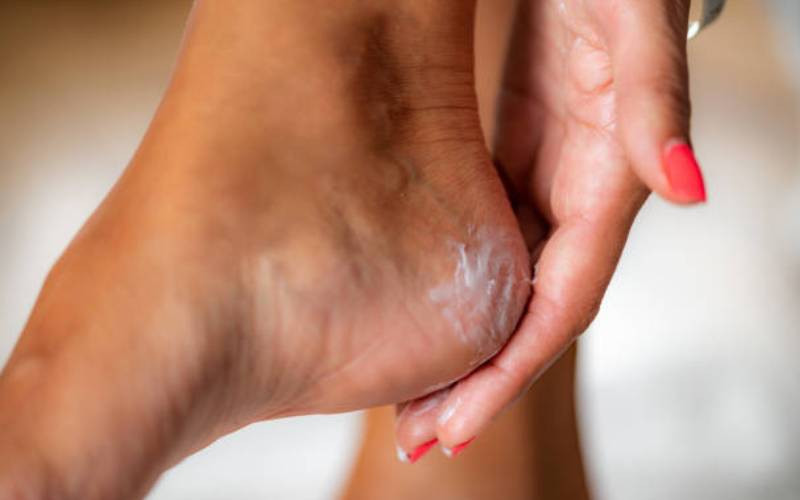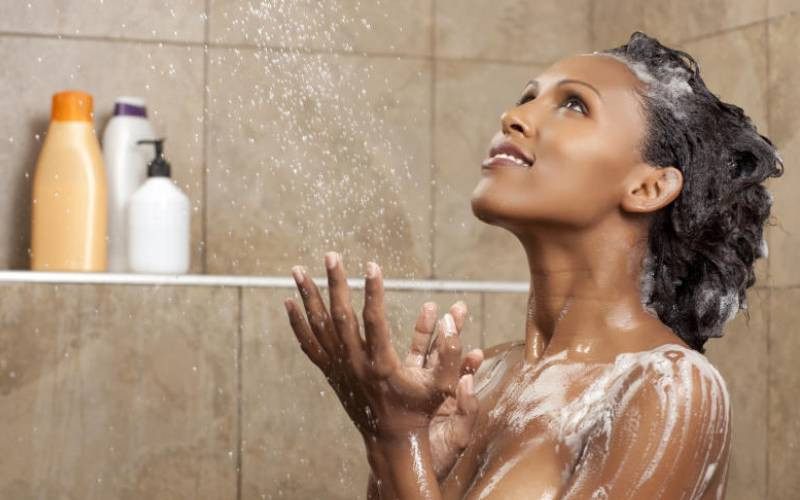
In a word – lockdown. We are eating too much junk, spending too much time indoors staring at screens, or going mad when the sun comes out.
Where skincare regimes usually revolve around make-up, both have been ditched together – or we’re slapping on face masks so often our poor faces don’t know what’s going on.
So which type of lockdown skin do you have? And how can you fix it?
Indoor face
Since lockdown, we’ve spent much more time indoors.
Whether you’re still shielding, working from home or have been furloughed, chances are you’re not getting outside as much as before.
Patchy dryness, surprise spots, unexpected redness and a rather drawn pallor are all signs.
Our exposure to sunlight and, in turn, our production of Vitamin D has been hugely reduced, even by British weather standards.
Dr Mario Luca Russo, cosmetic dermatologist at Urban Retreat, says: “Vitamin D production requires a daily 15-minute exposure of sun, ideally between 10am and midday.
“Vitamin D can prevent skin ageing, promote healthy bone growth, reduce the risk of certain cancers and improve your mood.
“A low level of vitamin D is associated with risk of psoriasis and atopic dermatitis.”
Skin fix: Getting outside more will not only reduce stress, but do your skin a huge favour.
Stress and anxiety can have negative effects on skin by causing hormonal changes in your body.
Go outside at least once every day for 20 minutes – but ideally more often, and for longer.
Wear sunscreen too, even in winter, as UVA rays are responsible for premature ageing and will get to you through glass, too.
Also take a Vitamin D supplement and get some exercise.

Sunburn
The recent good weather was great for barbecues and getting people outdoors – but it can wreak havoc with skin and leave you looking as ruddy as a farmer.
Ada Ooi, founder of 001 Skincare, says: “If you’ve slathered on SPF while sunbathing, you might get tiny breakouts.
“You might also see other related issues such as blackheads and whiteheads, because you’ve been layering and layering SPF so the pores have become blocked.
“If you haven’t been using SPF, you might start to feel the skin becoming tight and dry, with pigmentation showing.
“This is because your skin’s collagen and elastin fibres are starting to break down, as they can be damaged by the sun’s rays.”
Skin fix: Always use a high UVA/UVB sunscreen on your face, preferably one that’s Factor 50. Reapply it several times throughout the day – especially if you are perspiring a lot.
Wash your face before you go to bed so it’s squeaky clean, then cleanse and moisturise.

Kitchen face
This one’s down to overindulging in alcohol and salty and sugary snacks, usually out of boredom during lockdown.
Emma Coleman, dermatology and aesthetic nurse, says: “Eating and drinking substances with a high glycaemic index can lead to inflammation in the body.
“That in turn affects your skin. Excess sugar can aggravate skin conditions such as rosacea, acne and eczema, and cause dilation of blood vessels on the mid-face and nose – giving sufferers a ruddy and puffy look.”
Skin fix: Use a jade roller to massage and promote lymphatic drainage, which should help to detoxify the skin. Drink plenty of water to flush the sugar from your body and limit the number of snacks and sweets you eat.
If you’re prone to inflammation, it’s best to avoid the more sugary alcoholic drinks such as wine and Prosecco. Opt instead for low-sugar, clear spirits – gin or vodka, for example.
Apply a Vitamin C serum daily to nourish and protect the face.

Sleepy face
With all the fallout from lockdown, anxiety and a disrupted routine are causing many people to sleep less well than normal – leaving them looking tired and feeling sluggish.
Emma says: “If we are sleep-deprived, the skin can start to appear dull, almost grey, and the skin around the eyes is likely to become very inflamed and red.
“This is because our skin’s immune system may be weakened by poor sleep patterns, so we’re less able to fight off free radical damage.
“Unrested skin is prone to dehydration and formation of lines and creases as it struggles to create new collagen.
“Those with poor sleep can fall into a cycle of stress/sleeplessness/anxiety.”
Skin fix: Prioritise sleep. Try using lavender pillow sprays, sleeping tablets or get an earlier night to try and help you sleep better, as this is the only way your skin will properly benefit.
Nap in the day if you have to, then gradually build the sleeping routine back that suits your work or lifestyle. Keep at it, too, as sleep is so important for the body to function properly.

Screen face
Between work and the lack of face-to-face contact with friends and family, we’re spending more time than ever in front of a screen on video calls.
Skin specialist Lucy Xu, founder of London Premier Laser & Skin Clinics, says: “Blue light from screens can have a detrimental effect, promoting premature ageing, skin damage, inflammation and photo-ageing.”
There is also a higher risk of pigmentation, dry, rough skin and possibly eczema and psoriasis flare-ups.
This is partly due to blue light exposure, but actually video calls can also be intense and stressful for many. Staring at the screen for too long creates tension in the eyes, which can increase dark circles and bags.
Skin fix: Limit video meetings and catch-ups where possible, and take regular screen breaks.
The Health and Safety Executive suggests short, frequent breaks are better than less frequent longer ones.
So a 5-10 minute break every hour is better than a single 20-minute break every three hours.
Try using an antioxidant cream or serum, and wear a good moisturiser while you are on calls.
Using a face massage tool after each call will also help you to relax your facial muscles.
What is the first thing you notice about a person? The Standard Group Plc is a multi-media organization with investments in media platforms spanning newspaper print
operations, television, radio broadcasting, digital and online services. The Standard Group is recognized as a
leading multi-media house in Kenya with a key influence in matters of national and international interest.
The Standard Group Plc is a multi-media organization with investments in media platforms spanning newspaper print
operations, television, radio broadcasting, digital and online services. The Standard Group is recognized as a
leading multi-media house in Kenya with a key influence in matters of national and international interest.



